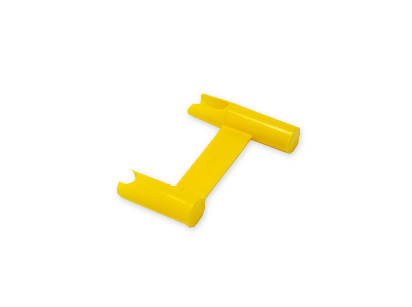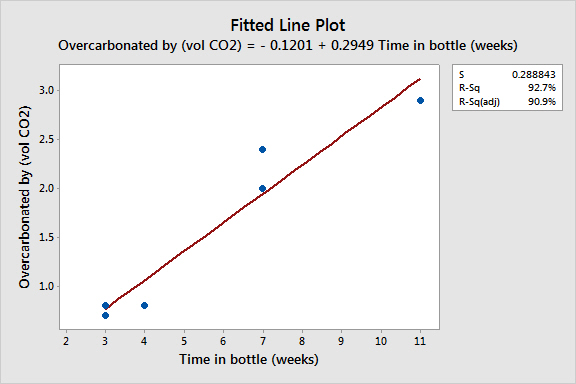It makes sense. Fermentation doesn't really stop when we bottle. It just slows asymptotically to the point where we don't pick up a measurable change after three days. Over three months it seems quite possible that the yeast could continue to convert what little remaining fermentable sugars are still in the beer but at an increasingly slow pace. Personally I do not have that kind of patience and that is why I make beer and not wine, mead or cider

.
I'm so glad someone on here is finally talking about overcarbing without immediately blaming infection. It does happen. After every beer I've bottled since I began about a year ago continued to overcarb with time, and with finally getting my first bottle bomb last weekend, I decided to get serious about seeing what's going on with my carbonation.
I borrowed a Zahn-Nagel carb tester from work and tested a bottle from every batch currently in my inventory that was made from a dry American Ale yeast (US-05, M-44 or BRY-97) and that was "normal" OG (1.050-1.070). These parameters selected so as to get a good sample size of comparable batches. I then calculated the "overcarb" on each one, defined as measured vol CO2 - target vol CO2 (as per priming calculators). Then I plotted overcarb vs. time since bottling (in weeks), and that graph is attached.
(A 2nd order polynomial or exponential fit might actually be better, and would give some hope that they eventually STOP overcarbing given enough time! Or else I guess that'd all bottle bomb eventually, huh?)
I also took gravity readings at test time and compared to the FG at bottling...which, by the way, was in all cases stable for at least a week. The 3-4 week old brews had lost 2 pts, the 7 week old brews lost 4 pts, and the 11 week old brew lost 6 pts. Yes, they are continuing to ferment in the bottle over weeks and months.
These are all 12oz bottles. All primed with corn sugar. They are all stored in stacked milk crates in a dark room at room temp (avg. ~75F). I've had numerous other batches that also were consistently finely carbed at 3-4 weeks, clearly overcarbed by 6-8 weeks, then nothing but foam-in-the-glass by 12+ weeks. Nailing carbing is my white whale.
It is not my sanitation, that's impeccable. What I do believe is that priming simply "reawakens" fermentation (just like people sometimes do when they get a stuck ferment, or when they want to make a super-strong ale with "sequential feedings" of fermentables, etc.),
and in that bottle you've already got a lot of residual fermentables and especially near-fermentables(e.g., short-chain dextrins) continuing to be acid-hydrolyzed in that low-pH environment and ready to go on getting chewed up by the yeast slowly over months.
I did catch the 3-4 week old batches in time to throw many bottles in the fridge, pasteurize some, and leave some alone, so I can monitor those over the next few weeks and months. It's really too late to do anything with the others except maybe try to de-gas them a bit by tipping caps. I am rapidly coming to the conclusion that I gotta get a separate beer fridge for my bottles to go into at about 3-4 weeks!
I believe this happens to a lot of newbs like me who bottle and store at non-fridge temperatures (witness the many overcarb and bottle bomb threads), and most of them probably have been beaten down and convinced that their sanitation is simply bad. Well, I don't necessarily believe that's the case.


























































 post!
post!